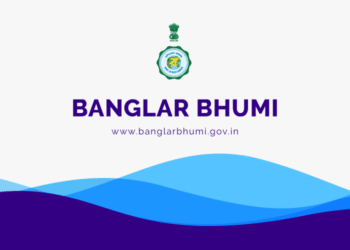In response to a question, India’s Information and Broadcasting Minister, Anurag Thakur claimed the Prime Minister’s monthly radio programme ‘Mann Ki Baat’ to be the “most popular televised radio programme”.
On Monday, the I&B Minister told Rajya Sabha that the programme has collected over Rs 30.80 crore as revenue since its inception in 2014, the year BJP formed the government. He claimed that the revenue collected was the highest during 2017-2018, as it fetched over Rs 10.64 crore.
“Prasar Bharati has broadcast 78 episodes of the ‘Mann Ki Baat’ programme till date on its All India Radio and Doordarshan network and also on the social media platform,” he said in his written response.
The question was posed by the Nationalist Congress Party (NCP) MP Fauzia Khan, after which Thakur gave the revenue data collected from the 78 episodes aired to this date. The programme ‘Mann Ki Baat’ has been telecasted through All India Radio and Doordarshan channels on the last Sunday of each month at 11 am.
Thakur further said that Prasar Bharti’s production does not have any additional expenditure for the programme, and only existing in-house resources are at use. “In-house staff is leveraged for production and existing translators engaged on an assignment basis for language versions.” This answer was in response to a sub-question posed by Khan.
According to Thakur, the Broadcast Audience Research Council’s (BARC) data of Television Channels, approximately six crores to 14.35 crore viewership is the data from 2018 to 2020. “As India’s most popular televised radio programme, ‘Mann Ki Baat’ has a substantial audience following,” the minister said.
He added that every citizen has the opportunity to connect through the programme to become a part of the “participatory governance through the Prime Minister’s radio address”.
Even though Thakur claimed the programme, which is the current Government’s attempt to reach the remotest areas, to be the popular programme amongst the masses, the revenues generated have dropped over 90 per cent as compared to the 2017-18 peak.
Since the peak in 2017-18 fiscal collected Rs 10.64 crore, 2018-19 the revenue dropped to Rs 7.47 crore. Since then, a further dip was seen, with Rs 2.56 crore collected in 2019-20 and Rs 1.02 crore in 2020-21. The last year’s collection is lower than the revenue generated in the first four months in 2014-15, which it launched.

This poses the question: Is the popularity of Modi’s programme is declining over the last three years?
The outreach programme is broadcasted on 34 Doordarshan channels, 91 private satellite television channels, and All India Radio network, with a social media presence. The masses can listen to the episodes on YouTube channels in 51 languages and dialects. The parent body of AIR and DD, Prasar Bharti, translates and re-broadcast the episodes in the dedicated languages and dialects for the locals.
A senior official from the All India Radio (AIR) told The Print that the program’s purpose is to focus on citizen engagement on the issues related to national interest and the public and not to generate revenue. “Given the audience profile and the purpose of Mann Ki Baat, there is increased social messaging rather than commercial advertising,” the official said.
ThePrint’s report states that a senior government official said that the reason for the sharp fall in revenues is due to the pandemic. “Advertising across the industry has suffered, and DD and AIR are no exceptions,” the official said.
The official also added that the programme saw a significant dip in private advertising in the last two years, and a decline in government advertising overlapped during the same time.
Another official said that the second reason for the dip in revenues might also be poor client servicing by AIR and DD. “Clients at times cannot be provided with adequate data on impact analysis and other measures, not just for Mann Ki Baat, but also other shows,” the official said.
More information given by another source pointed to centralised broadcasting by clubbing a few local stations together. “This could have affected the revenues too, especially those generated by the smaller stations,” the source said.
The standing Committee on Information Technology published a report on Prasar Bharati’s net income, which has nearly halved over the last three years, with increasing pro-bono campaigns. The announcement was made public in March this year and excluded the previous quarter of 2020-21.
Also Read: Mann ki baat: India overtook Brazil as the country with the second highest recorded corona cases












